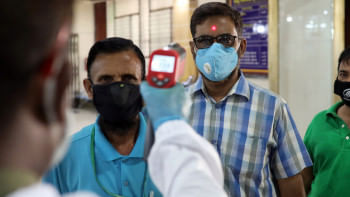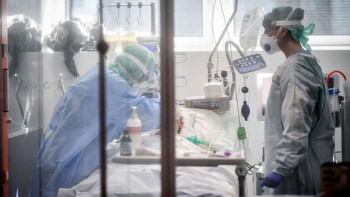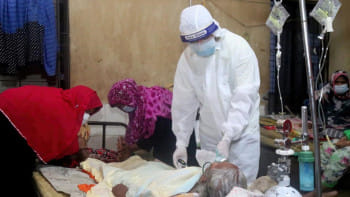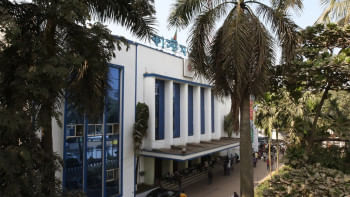Break the syndicate of ambulance owners

At a time when people are finding it difficult to bear even regular healthcare expenses due to the extremely high cost of living, it is disheartening to know that a syndicate of ambulance operators is holding patients hostage at public hospitals by forcing them to use their service, often with double the usual fare. According to a report by this daily, members of two ambulance owners' associations have combined to form the syndicate that operates in every public hospital of the country to make sure that no ambulance from outside their network can take patients to their destinations.
For instance, when patients from Dhaka Medical College and Hospital (DMCH) want to go back to their respective districts, they are forced to use the services of these two associations, paying extra money. If an ambulance from outside the capital somehow carries any patient out of a hospital in Dhaka, the syndicate takes half the fare as its cut. This has become the general practice, with the hospital authorities turning a blind eye.
An ambulance owner from Kushtia told our correspondent that as soon as patients are taken inside DMCH from ambulances, they are driven out of the hospital premises by the syndicate members to eliminate competition. And a patient's father, who was trying to hire an ambulance to go back to Noakhali from DMCH, said that while an ambulance from Noakhali would cost him Tk 3,000 for the ride back home, the ambulances available in DMCH would charge him around Tk 6,000. This is nothing but extortion. At a time when people are already left high and dry by their increasing medical bills, the syndicate is just worsening their misery.
It should be noted that over the last decade, people's out-of-pocket spending on healthcare has increased significantly. According to the Bangladesh National Health Accounts (BNHA) 1997-2020 data, such expenditure rose from 62 percent in 2012 to 68.5 percent in 2020. This is in addition to the astronomical prices of nearly every commodity, food item, utility or service that people are forced to pay. Unfortunately, the government's effort in this regard has been nothing short of disappointing. Even though the government promised to bring down out-of-pocket healthcare expenditure to 32 percent by 2032, it is most likely to remain a pipe dream given the present reality.
The ambulance menace is just an example of how mismanaged and poorly governed the public health sector is. The question is, why would people have to struggle even to access basic healthcare? Why would they have to sell their assets or borrow money to come to the capital for treatment? Why can't patients get healthcare at affordable prices in their own districts? Clearly, the government has a lot to do to ensure that the middle and low income people can afford healthcare.
As regards the cartel of ambulance associations, we urge the public hospital authorities to take effective steps against them so that they cannot exploit patients. Patients must be spared the extra financial burden during these difficult times.


 For all latest news, follow The Daily Star's Google News channel.
For all latest news, follow The Daily Star's Google News channel. 










Comments